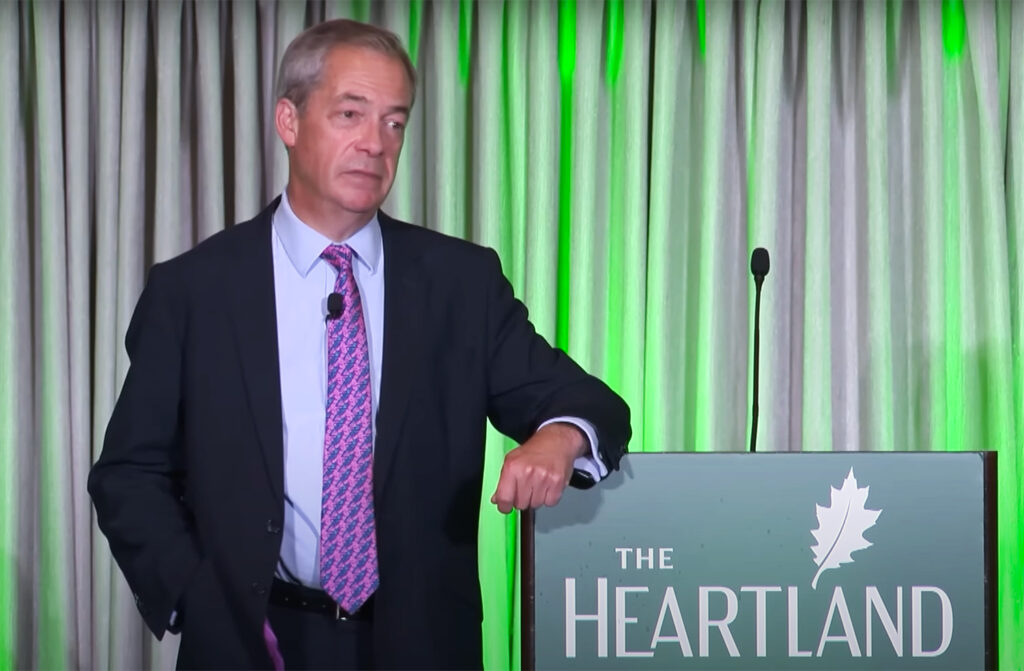Campaigners have accused the biomass industry of making “false” and “misleading” claims to European members of parliament ahead of a crunch vote to tighten protections for precious forests.
Biomass power stations, such as Drax in northern England, burn wood pellets to generate electricity – which is treated in the EU and UK as a renewable energy source if the process meets certain sustainability criteria. Environmentalists have long warned that demand for the pellets is endangering irreplaceable primary forests in areas including parts of Estonia, British Columbia in Canada and the southeastern United States.
European law-makers are due to vote on a revised renewable energy directive next week, part of the EU’s Green New Deal to slash carbon emissions by 55 percent by 2030. The draft, first published in July 2021, includes proposals to extend forest protections by introducing more stringent definitions of the types of timber or wood products that can count as fuels.
The World Bioenergy Association (WBA), which represents Drax and pellet producer Enviva, has been running a PR campaign to undermine support for the proposals through paid media articles and social media posts. Christian Rakos, president of the lobby group, is convening a seminar in Brussels today aimed at influencing European parliamentarians to vote against the measures.
“While we recognize the good intentions of the Parliament’s policymakers, we are worried that this amendment will prove to be counterproductive if not deleterious for climate protection, maintenance of healthy forests and European energy security,” Rakos, a career bioenergy executive, wrote in an invitation letter to MEPs dated August 29.
In the letter, the WBA argues that sustainably sourced primary or woody biomass accounts for nearly half of all biomass consumed in the EU, which makes it an “essential feedstock for Europe’s energy security” in the wake of Russia’s invasion of Ukraine.
However, campaign coalition Forest Defenders Alliance says the letter is riddled with “misleading” and factual errors, including what they say are “false” claims about the EU’s forest carbon sink, and the speed with which trees are able to grow back. They have sent MEPs a version marked with their corrections.
“The WBA is pulling every misleading trick in the book to claim bioenergy is clean and green, including actually over-representing the amount of energy burning trees provides,” Mary Booth, director of Partnership for Policy Integrity, a U.S. non-profit tracking biomass, who authored the comments, told DeSmog. “Not only is replacing bioenergy with zero-emissions renewable energy possible, it’s essential if the EU is to achieve its climate and nature goals.”
‘Misleading’
Campaigners have also pointed out that none of the seven expert panelists at the WBA-convened seminar – called “Seeing the Wood for the Trees” – hold openly critical views on biomass.
Scheduled speakers include a special advisor to Hawkins Wright – a consultancy to the pulp, paper and bioenergy industries, alongside representatives of the WBA and Bioenergy Europe, a lobby group co-hosting the event.
Rakos has also come under fire from Laurence Tubiana, a former French diplomat and an architect of the 2015 Paris Agreement on climate change, over his claims.
In an Aug. 24 WBA-sponsored article for Politico Europe, “The backslide on renewables Europe can’t afford”, Rakos argued that sustainable biomass was more reliable than wind or solar power, and that restrictions on what wood could be burnt would “wipe out” 20 percent of the EU’s renewable energy capacity.
The article referred to a report by the European Climate Foundation (ECF), which listed bioenergy as among 15 “structural levers” that governments could turn to in order to increase energy security in Europe.
However, Tubiana, the ECF’s chief executive, tweeted that the article had misinterpreted her organisation’s position.
“The article misleadingly refers to a report of ours, which [lists] emergency measures governments *could* turn to *if* Russia cuts off all gas to the EU this winter. The ECF has not “called for” these measures as the article claims,” Tubiana tweeted.
“However we cope this winter, this summer showed the reality of the (climate) emergency. We must not lock in climate-damaging solutions.”
Tubiana added that the European Parliament would have an “opportunity to set the EU on the right path by voting for a more ambitious renewables target, which excludes forest biomass and helps Europe build the wind and solar infrastructure we need”.
The latest scrutiny of the biomass lobby follows reporting by DeSmog in April on industry efforts to dilute EU biodiversity rules, spearheaded by the US Industrial Pellet Association (USIPA), of which Drax is also a member.
Bioenergy of all kinds – such as wood, biodiesel or biogases – currently makes up around 60 percent of the EU’s renewable energy mix, and receives around 17 billion euros a year in subsidies, according to campaigners. Burning wood provides around 30 percent of renewables and biofuels.
However, campaigners have long argued that burning wood should not be classified as ‘zero emissions’. The practice actually emits more carbon pollution per unit energy than fossil fuels, and, they say, forests regrow too slowly to offset these emissions, with newly planted young trees unable to absorb as much carbon as the older trees they replace.
Campaigners are now calling for MEPs to end subsidies for the burning of forest wood for energy. They also want to get rid of exemptions whereby biomass can be used from forests affected by fires, disease and pests – arguing that these can provide important carbon sinks and habitats that thousands of species depend on.
In an article in the Guardian on Monday, Swedish activist Greta Thunberg and fellow climate campaigners called on MEPs to change the EU’s “discredited and harmful renewables policy” and stop the “downward-facing negative spiral” of the renewable energy directive by excluding biomass altogether
“I’ve dedicated my whole professional life to protecting forests and ecosystems,” Siim Kuresoo, vice chair of the board of the Estonian Nature Foundation, told DeSmog.
“If forest biomass was excluded [from receiving subsidies], that would be a big win for European forests. It would recognise vital elements of the forest – contributing to tackling climate change, helping biodiversity, their role as a home to people, and a place for recreation.”
Martin Pigeon, of environmental organisation Fern, said that a vote in favour of the proposed biomass regulations would strike a significant blow against the industry by underscoring that burning forest biomass during a climate crisis was a “terrible idea.”
“It is not by chance that the most visible lobby groups on the file have been the World Bioenergy Association and the US pellets industry trade association, in addition to the local lobby group Bioenergy Europe,” Pigeon told DeSmog. “This policy decision threatens the industry globally, because allowing its development was an EU mistake in the first place and this mistake shall hopefully be corrected now.”
The World Bioenergy Association, Bioenergy Europe, Drax and Hawkins Wright were approached for comment.
Subscribe to our newsletter
Stay up to date with DeSmog news and alerts







